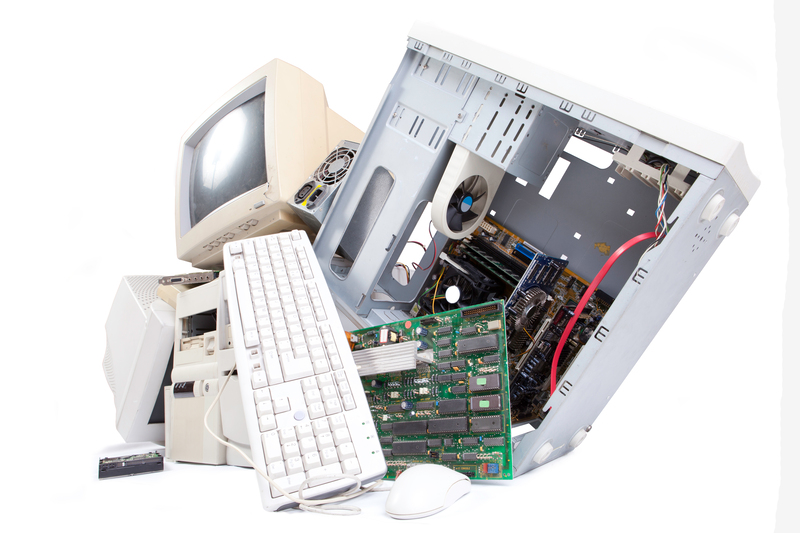Innovative Tips to Cut Down on Plastic Waste
Everyone knows plastic waste is a major environmental concern, but finding fresh and effective strategies to address this issue is crucial. Whether you are an individual, business owner, or community leader, adopting innovative ways to reduce plastic waste can make a real difference. This article explores comprehensive and creative insights on how to minimize, reuse, recycle, and even avoid single-use plastics in your everyday life. Let's dive into practical, cutting-edge solutions that not only help our planet but also inspire others to join in the movement.
Understanding the Impact of Plastic Waste
To effectively cut down on plastic waste, it's essential to understand its impact. Plastic pollution affects our oceans, wildlife, and even our health. Since many plastics are non-biodegradable, they persist for hundreds of years, breaking down into microplastics that contaminate water, food, and the air we breathe. Recognizing the magnitude of this problem is the first step toward meaningful change.

Why Traditional Tips Aren't Enough Anymore
Simple actions like using reusable bags or recycling plastics are important, but they often fall short given the scale of plastic pollution. It's time to embrace innovative and advanced solutions--from product design to personal habits--to truly make a local and global impact.
Innovative Tips to Reduce Plastic Waste at Home
1. Switch to Plastic-Free Alternatives
- Bamboo utensils: Replace plastic cutlery with reusable bamboo or stainless steel options for everyday use and travel.
- Silicone food storage: Try silicone food bags and lids instead of plastic wrap or zipper bags. They're washable, reusable, and last much longer.
- Glass containers: Store leftovers and pantry items in glass jars or containers. This not only cuts plastic waste but also keeps your food fresher.
2. Support Brands with Innovative Packaging
- Edible packaging: Some brands now offer edible or compostable packaging. For example, pasta wrapped in starch-based film or drinks in seaweed capsules.
- Refillable products: Choose companies that allow you to refill packaging, like cleaning sprays, shampoos, and even spices.
- Minimalist designs: Favor brands with minimal or no packaging, and consider bulk shopping wherever possible.
3. DIY Household Solutions
- Homemade cleaners: Make your own cleaning products using vinegar, baking soda, and essential oils to avoid buying plastic-packaged alternatives.
- Beeswax wraps: Craft beeswax-infused cloth wraps to replace plastic wrap for food storage.
- Upcycling projects: Turn large plastic bottles into watering cans, planters, or storage containers instead of tossing them in the trash.
Novel Tips to Reduce Plastic Use While Shopping
1. Embrace a Package-Free Lifestyle
- Visit zero-waste stores: Seek out stores that let you bring your own containers and bags to minimize or eliminate packaging waste.
- Choose local products: Local farmers are more likely to use less packaging than large-scale supermarkets or imported items.
2. Adopt Refill Stations
- Bulk bins: Buy food, detergents, and even personal care products from bulk bins using your own containers.
- On-the-go refills: Bring refillable water bottles and travel mugs to cafes, restaurants, and drink stations, and encourage local eateries to introduce incentives for reusable containers.
3. Eco-Friendly Shopping Habits
- Refuse unnecessary packaging: Politely decline straws, utensils, or extra bags at stores and restaurants.
- Choose products with less plastic: Opt for items packed in paper, cardboard, or other sustainable materials.
- Buy in bulk: Purchasing larger quantities reduces the overall packaging waste generated.
Advanced Tips for Cutting Plastic Waste at Work
1. Implement Sustainable Office Supplies
- Go paperless: Use digital documents and cloud storage to cut down not only on paper but also plastic packaging around office supplies.
- Purchase eco-friendly supplies: Invest in biodegradable pens, refillable markers, compostable folders, and notebooks with recycled content.
2. Promote a Plastic-Free Workplace Culture
- Host plastic-free challenges: Encourage staff to avoid single-use plastics for a week or more, inspiring healthy competition and new ideas.
- Shared kitchen utensils: Provide communal plates, glasses, and utensils to reduce reliance on disposable plastic cutlery and cups.
- Office recycling stations: Set up effective recycling and composting stations, clearly labeled and accessible to all staff members.
3. Partner with Sustainable Vendors
- Sustainable procurement: Vet suppliers and choose those with demonstrated commitments to plastic reduction and sustainable packaging.
- Collaborative initiatives: Participate in industry-wide programs and certifications for plastic-free or low-waste workplaces.
Smart Solutions for On-the-Go Individuals
1. Pack a Plastic-Free Kit
- Portable utensils & straw: Always carry a reusable set of utensils and a metal or silicone straw in your bag.
- Collapsible containers: These handy alternatives can replace takeout boxes or coffee cups wherever you go.
- Travel soap bars: Skip small, plastic-bottled toiletries and carry solid soap and shampoo bars instead.
2. Embrace Sustainable Fashion
- Choose natural fabrics: Opt for clothes made from cotton, linen, wool, or hemp, which involve less plastic in production and packaging.
- Repair, swap, or upcycle: Extend the life of your clothes by repairing small damages or swapping with friends, further reducing plastic microfibers released by synthetic garments.
Cutting-Edge Technologies Reducing Plastic Waste
1. Bioplastics and New Materials
- Biodegradable plastics: Look for products made with PLA, PHA, or cornstarch-based plastics, which decompose more easily in natural environments.
- Plant-based packaging: Innovations like mushroom, seaweed, or rice husk packaging offer alternatives with minimal environmental impact.
2. Advanced Recycling Methods
- Chemical recycling: This promising technology breaks plastics down to their original molecules, enabling endless reuse.
- Community recycling tech: Support new apps and startups that incentivize local plastic collection and upcycling programs.
The Role of Education and Community Action
1. Education Initiatives
- Workshops & Seminars: Attend or organize events that teach creative ways to minimize plastic use at school, work, and home.
- Social media campaigns: Share plastic waste reduction tips online to inspire your community and raise awareness.
2. Community Cleanups and Projects
- Host regular clean-ups: Remove plastics from parks, beaches, rivers, and streets; involve local organizations and businesses.
- Support local legislation: Advocate for bans on single-use plastics, plastic bag fees, and other progressive waste management policies.
- Plastic-free community programs: Join or start initiatives encouraging local shops and restaurants to reduce plastic packaging and promote reusables.
Creative Alternatives for Plastic Packaging and Products
1. Encourage Compostable Solutions
- Compostable mailers: Next time you shop online, request or choose companies using compostable shipping bags or boxes.
- Plant-based plates and cups: Opt for compostable dinnerware at your next event or picnic, instead of traditional disposables.
- Returnable packaging: Some grocers and meal kit services offer packaging take-back or deposit systems for reuse.
2. Support Circular Economy Startups
- Reusable delivery systems: Subscribe to milk, juice, or grocery services using glass bottles or returnable containers.
- Closed loop recycling: Choose companies committed to collecting and reprocessing their own packaging into new products.

Empowering Future Generations and Sustaining Change
Educators, parents, and mentors play a key role in modeling positive behaviors for future generations. Teach children the value of sustainability, the problems of plastic pollution, and creative, hands-on ways to avoid unnecessary plastic items. Incorporate arts and crafts with upcycled materials, engage them in community cleanups, and celebrate plastic-free milestones.
1. Engage the Next Generation
- Plastic-free school lunches: Encourage reusable wrapping, containers, and water bottles for students.
- Environmental clubs: Start or support youth initiatives focused on innovative waste reduction projects.
- Interactive learning resources: Books, games, and apps can make plastic awareness engaging for younger audiences.
Conclusion: Every Small Step Makes a Big Difference
With our world's plastic problem reaching unprecedented levels, taking bold, innovative steps to cut down on plastic waste is more important than ever. Fortunately, from simple product swaps to supporting new technologies and community programs, each action contributes to a cleaner, healthier planet.
Adopt these tips in your daily life, share them with others, and encourage your workplace, school, or local businesses to do the same. Remember, the journey toward zero plastic waste starts with a single, thoughtful choice--let's make that choice today!
Key Takeaways
- Cutting down on plastic waste is achievable when we mix creativity, tech, and community engagement.
- Seek out new materials, smarter shopping, and innovative recycling methods to create lasting change.
- Educate, inspire, and join together to make the vision of a plastic-free future a reality.
Start your plastic waste reduction journey today--every small decision matters!